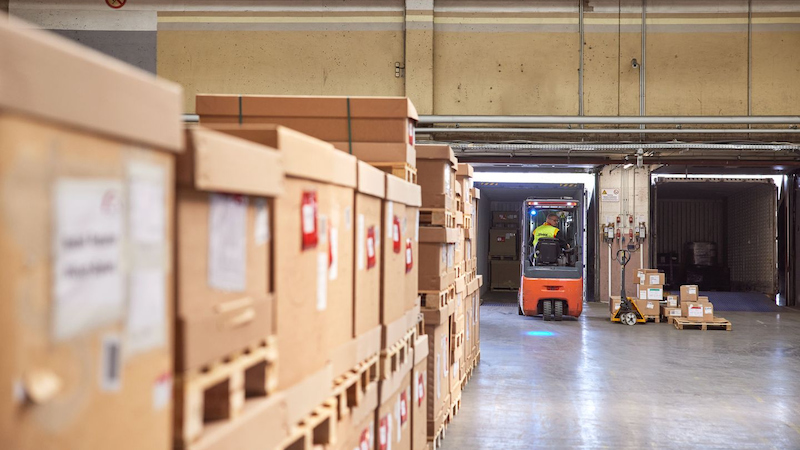Grow your business with the Discover newsletter
Logistics advice & insights straight to your inbox
Subscribe now
Capitalising on the momentum of recovery, businesses are looking to resume the importing of goods into Australia. If you are considering adding imported products to your business, it is required of you to adhere to specific rules and regulations. The following steps will help you understand how you can import products into Australia, what is required, and what are the costs involved.
The Australian Border Force (ABF) is responsible for the customs clearance of imported goods when they first arrive in Australia and importers must declare all goods. In general, all imported products must have proper labelling with accurate explanations. In addition, they must include the country of origin or production in English. Keep in mind that a lack of labelling may result in confiscation of goods. Apart from labelling rules, companies and individuals do not need to have an import licence for importing.
It is important to note that some goods require registration before importing into Australia. Some of these products include industrial, agricultural, and veterinary chemicals. The regulation aims to ensure that the products are harmless when exposed to people and non-target species, either directly or through residues in treated foods. Essentially, it must be safe for the environment, effective against target species, and properly labelled and packaged before it can be brought into the country.
All imports must accurately go through proper valuation to estimate the tariffs, duties, charges, and taxes. The most common method of valuing goods for customs purposes is by transaction value. Typically, it represents the actual paid (or payable) price for the imported goods. According to the Australian Border Force, it is important to note that customs in Australia use the exchange rate on the day of exporting the products in the valuation.
Before you start importing to Australia, there are charges, taxes, and duties that may apply. The following costs depend on the value and classification of the products. Usually, customs clearance follows upon payment of the relevant tariffs.
There are no duties applicable for goods valued under AU$1,000. However, importers will need an Import Declaration for goods valued over AU$1,000. This rule does not apply to goods such as tobacco or alcohol, where duties and taxes are due regardless of their value.
As mentioned above, all Australian imports must go through customs clearance by the ABF. In this regard, importers must provide an Australian Business Number (ABN). Additionally, they must have a registration for GST to claim input tax credits.
There are many GST-free products such as basic food items and some medicines. You may apply for a GST credit if you plan on making Australia importation your primary business activity. Additionally, if you wish to defer payment of GST, you may participate in the Deferred GST Scheme, shared by the Australian Taxation Office.



Although Australian Customs does not require import licences, permits are still required to clear the goods. The required documentations to clear customs are:
A completed Customs Entry or Informal Clearance Document (ICD)
An air waybill (AWB) or bill of lading (BLAD)
Other supporting documents including invoices of the import
Another aspect of clearing imported goods from customs control is the Import Declaration. The primary purpose of this declaration is to collect details about the importer, how the goods are transported, the tariff classification, and the customs value. Depending on these factors, you may need to file one of these three declarations:
An Import Declaration (N10 Form) – for items with a value greater than AU$1,000.
A Self-Assessed Clearance (SAC) declaration – for air-freighted or shipped items that have a value of less than AU$1,000.
A Warehouse Declaration (N20) – for items stored in warehouses before clearing customs (valued more than AU$1,000).
Importing goods into Australia can be an issue for inexperienced importers. It might be time-consuming for businesses due to a lack of experience, and could potentially increase costs or incur damages. DHL Express will be able to guide you through the entire customs clearance process.
With extensive expertise and experience worldwide, DHL Express is a reliable international express delivery partner for businesses in Australia. We ensure smooth and quick shipments with standardised services, so you can benefit from an efficient customs clearance process along with flexible additional services to match your shipment needs. Open an account with us and start exploring the benefits of shipping with MyDHL+ today.
DISCLAIMER:
While we have made every attempt to ensure that the information contained herein has been obtained, produced and processed from sources believed to be reliable, no warranty, express or implied, is made regarding the accuracy, adequacy, completeness, legality, reliability or usefulness of such information.
All information contained herein is provided on an "as is" basis.
In no event will DHL Express, its related partnerships or corporations under the Deutsche Post DHL Group, or the partners, agents or employees thereof be liable to you or anyone else for any decision made or action taken in reliance on the information contained herein or for any consequential, special or similar damages, even if advised of the possibility of such damages.